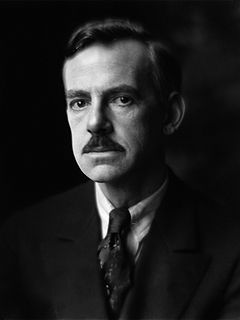A Quote by Mary Wollstonecraft
Executions, far from being useful examples to the survivors, have, I am persuaded, a quite contrary effect, by hardening the heart they ought to terrify. Besides, the fear of an ignominious death, I believe, never deterred anyone from the commission of a crime, because in committing it the mind is roused to activity about present circumstances.
Related Quotes
I could never be anyone I've played. I am so not a detective; I can barely get 200 yards from A to B with the help of Google maps, and I am just about the least observant person on the planet, so I never notice what people look like or how they walk or if they're committing a crime in broad daylight.
The maxim that men are not to be praised before their death was invented by envy and too lightly adopted by philosophers. I, on the contrary, maintain that they ought to be praised in their lifetime if they merit it; but jealousy and calumny, roused against their virtue or their talent, labour to degrade them if any one ventures to bear testimony to them. It is unjust criticism that they should fear to hazard, not sincere praise.
A lot of people fear death because they think that so overwhelming an experience has to be painful, but I've seen quite a few deaths, and, with one exception, I've never known anyone to undergo anything like agony. That's amazing when you think about it. I mean, how complicated the mechanism is that's being taken apart.
I am quite ready to acknowledge . . . that I ought to be grieved at death, if I were not persuaded that I am going to other gods who are wise and good (of this I am as certain as I can be of any such matters), and to men departed who are better than those whom I leave behind. And therefore I do not grieve as I might have done, for I have good hope that there is yet something remaining for the dead.
Do I fear death? No, I am not afraid of being dead because there's nothing to be afraid of, I won't know it. I fear dying, of dying I feel a sense of waste about it and I fear a sordid death, where I am incapacitated or imbecilic at the end which isn't something to be afraid of, it's something to be terrified of.
In this science the illustrations and examples are not confined in their effect merely to the practice they afford in the analytical art, but [...] they also store the mind with independent geometrical and physical knowledge. Besides, it should be considered, that the only effectual method of impressing abstract formulae and rules upon the memory, and, indeed, of making them fully and clearly apprehended by the understanding, is by examples of their practical application.
The ever-present expectancy of death is never far removed from any of us - whether we realize it or not. None of us can avoid it. It comes alike to the great and to the unknown; to the righteous and to the unrighteous. Wherein we differ is not in our ability to avert it, but in the preparedness with which we meet it. At such times some question the judgments of God. Some find bitterness because of the circumstances and because of the seeming untimeliness of death.
Infidelity does not consist in believing, or in disbelieving; it consists in professing to believe what he does not believe. It is impossible to calculate the moral mischief, if I may so express it, that mental lying has produced in society. When a man has so far corrupted and prostituted the chastity of his mind, as to subscribe his professional belief to things he does not believe, he has prepared himself for the commission of every other crime.
I don't necessarily view death as something negative. Death gives meaning to life. Living in fear of death is living in denial. Actually, it's not really living at all, because there is no life without death. It's two sides of the one. You can't pick up one side and say, I'm just going to use the 'heads' side. No. It doesn't work like that. You have to pick up both sides because nothing is promised to anyone in this world besides death.
When I consider the wonderful activity of the mind, so great a memory of what is past, and such a capacity of penetrating into the future: when I behold such a number of arts and sciences, and such a multitude of discoveries hence arising,--I believe and am firmly persuaded that a nature which contains so many things within itself cannot be mortal.





































